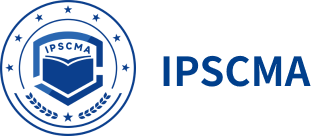From Starbucks to Apple: How best-in-class companies can build efficient supply chain procurement systems
As I walk through a Starbucks store with a hot latte in hand, few people think about the supply chain miracle behind it: how can coffee beans from more than 20 countries reach more than 34,000 stores around the world with precision and consistency?
This is not magic, but the crystallization of a sophisticated supply chain procurement system.
1. Starbucks' global coffee sourcing strategy
Starbucks has created the C.A.F.E. (Coffee and Farmer Equity) Practice Standard, which is not only a procurement standard, but also a complete supply chain quality control system.
Their procurement team will:
1. Establish relationships directly with farms and bypass middlemen
2. Implement strict quality control standards
3. Establish long-term partnerships to ensure supply stability
4. Implement a price protection mechanism to reduce the risk of market volatility
In this way, Starbucks solves three major procurement challenges: quality consistency, supply stability, and cost controllability.
2. Apple's art of supplier management
When it comes to supply chain management, you can't fail to mention Apple. Over the years, Apple has detailed their procurement philosophy in the Supplier Responsibility Progress Report: to treat suppliers as strategic partners.
Apple adopts the "3T model" to manage suppliers:
- Technology: Rigorous selection of suppliers with advanced technology
- Time: Requires the supplier to be able to respond quickly
- Trust: Establish long-term strategic partnerships
The most noteworthy thing is that Apple divides suppliers into three tiers and adopts differentiated management for different tiers:
1. Strategic suppliers: joint research and development, deep resource binding
2. Key Suppliers: Work closely together, but maintain moderate competition
3. General suppliers: normalized competitive negotiations
3. Toyota's JIT procurement model revolution
Toyota's procurement system is a world-class model. Their procurement team is not only concerned with costs, but also on the supplier's ability to improve.
At the heart of Toyota's procurement is the "Just-In-Time" philosophy:
1. Purchase only the quantities you need, when you need them
2. Suppliers must be located near the factory, forming a "supplier village"
3. Use the kanban system to realize the real-time transmission of demand signals
4. Suppliers must commit to continuous improvement and zero defects
The point is that Toyota not only requires suppliers to do this, but also sends its own engineers to help suppliers achieve these goals, creating a win-win situation.
Fourth, the four core competencies of professional procurement talents
From the practice of these world-class enterprises, we can summarize the key competencies that procurement professionals need to have:
1. Strategic thinking ability: be able to connect procurement with the overall strategy of the enterprise
2. Negotiation and relationship management skills: Establish long-term and mutually beneficial supplier relationships
3. Risk Management Capabilities: Anticipate and mitigate supply conflicts, as global businesses are experiencing. This is not just an example, but a model, establishing a "3 2" multiple supply system (3 main suppliers).
Professional Certification: Inventory Optimization.
During the global "core shortage" crisis in 2021, the strategic positioning was upgraded: from cost center to value creation
Traditional procurement focuses on "buying cheaply", while modern procurement management focuses more on "buying value". P&G repositioned its procurement team as a "business value partner," with purchasing managers responsible for not only controlling costs, but also participating in product innovation and market strategy. This shift aligns purchasing decisions with the overall corporate strategy, creating greater business value.
Restructuring supplier relationships: from transactions to strategic partnerships
GE has established a "Supplier Center of Excellence" to include core suppliers in the early stages of product development.
Talent training innovation: from professional division of labor to cross-border integration
IBM's procurement department implements the T-shaped Talent Development Program, which requires procurement professionals to be proficient in not only procurement skills, but also in-depth knowledge of business strategy and related technical areas. They spend 30% of their training resources on cross-departmental rotations and project practices, developing a group of procurement leaders with strategic thinking.
Mastering these five strategies is essential for the career development of procurement professionals. In the face of an increasingly complex global business environment, there is a surge in demand for strategically minded procurement talent.
In the competition in the workplace, it is no longer possible to meet the new challenges by relying only on traditional procurement skills. Today's true procurement elite requires global strategic thinking, deep industry insight, data analysis capabilities, cross-cultural communication skills, and risk management awareness. These abilities have to play a role. The internationally recognized qualification in procurement management not only systematically enhances professional knowledge, but also provides a strong endorsement for career development. In particular, certification programs that incorporate the latest industry practices can help procurement professionals build a complete body of knowledge and problem-solving methodology.
Under the trend of globalization, procurement management has become a key component of the core competitiveness of enterprises. Mastering advanced procurement management concepts and methods can not only help enterprises reduce costs and increase efficiency, but also create great value in supply chain risk management and innovation collaboration. For professionals who are interested in making breakthroughs in the field of procurement management, systematically learning advanced concepts and participating in the practice sharing of benchmarking enterprises is an effective way to accelerate career development.
At present, enterprises are facing multiple challenges such as economic globalization, increasing supply chain complexity, and digital transformation, which raises skills issues for procurement management, and is a comprehensive upgrade of thinking and professionalism. The improvement of professional quality requires deliberate practice, systematic learning and senior guidance, which is the key to outstanding procurement talents to stand out.
The strategic value of procurement management is becoming increasingly prominent. Investing in one's own professional capabilities and mastering the procurement management experience of world-class enterprises is undoubtedly the magic weapon to enhance professional competitiveness.
